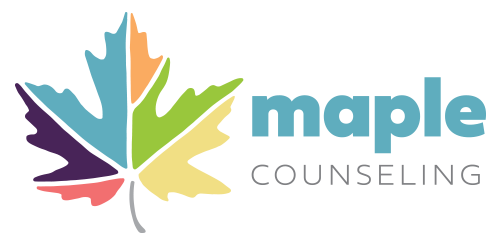
CLINICAL TRAINING PROGRAM
One of Maple Counseling's primary functions is to provide training to the next generation of mental health professionals. We offer a comprehensive training program for graduate students working toward their LMFT, LCSW or LPCC license in the state of California.
The foundation of Maple Counseling's treatment philosophy is depth-oriented work, which includes brief and longer-term approaches with the aim to address and improve a client’s current life functioning. Trainees are exposed to a variety of insight-oriented and psychodynamic modalities of treatment. They also receive diverse client and clinical experiences with extensive supervision and training. Offsite experiences are also available in schools and at partnering community-based agencies.
The Maple Clinical Training Program is for MFT and PCC Trainees and Social Work students enrolled in BBS-approved graduate programs. Trainees are volunteers. We do not charge training fees.
The next opportunity to join Maple Counseling as a Trainee is the August 2026 cohorts.
All three Clinical Training Programs – Adult Therapy, Adolescent Therapy, and Child & Family Therapy – have a cohort beginning in August 2026. Application links are below.
Application Deadline for AUGUST cohort: Sunday, March 1st
Join Our Informational Open Houses (via Zoom)
ADULT THERAPY PROGRAM
Wednesday, January 21st
11:30am–1:00pm
RSVP Here
Monday, February 2nd
6:00pm–7:30pm
RSVP Here
CHILD, ADOLESCENT and FAMILY THERAPY PROGRAMS
Tuesday, January 20th
11:30am–12:30pm
RSVP Here
Tuesday, February 3rd
6:00pm–7:00pm
RSVP Here
New Trainee Orientation
AUGUST cohort:
August 17 - 28
Traineeship Start Date
AUGUST cohort:
August 31, 2026
REQUIREMENTS
The clinical training program at Maple Counseling requires a one-year minimum commitment, averaging 18 – 20 hours per week.
Trainee applicants must be enrolled in an accredited graduate program, in good standing.
Each of our clinical training programs - Adult, Adolescent and Child & Family - begin a training cohort in August. We also begin Adult Program training cohorts in January and April. Applications are accepted between January and March for the April and August cohorts. Applications for the January cohort are accepted in the fall. All completed applications are reviewed, and candidates may then be invited to interview.
Trainees are required to provide 10 clinical hours per week. In addition, Trainees attend a two-hour group supervision and one hour of individual or triadic supervision each week. Group supervision is in-person at the Maple clinic. Weekly clinical seminars are mandatory. First year trainees in the Adult Program receive training in assessment and diagnosis and conduct all adult client intakes.
Trainees are required to see clients a minimum of one evening per week and to commit hours on Friday and/or Saturday. All trainees will see clients in the Maple clinic and may also conduct telehealth.
Prospective Trainees and MSW students may contact trainingprogram@tmcc.org for more information.
For more information about the Maple Counseling Clinical Training Program and cohorts for 2026, please click on the following PDF: Information Sheet
To apply for the AUGUST 2026 Adult Therapy Traineeship, please click here.
To apply for the AUGUST 2026 Adolescent Therapy Traineeship, please click here.
To apply for the AUGUST 2026 Child & Family Therapy Traineeship, please click here.
